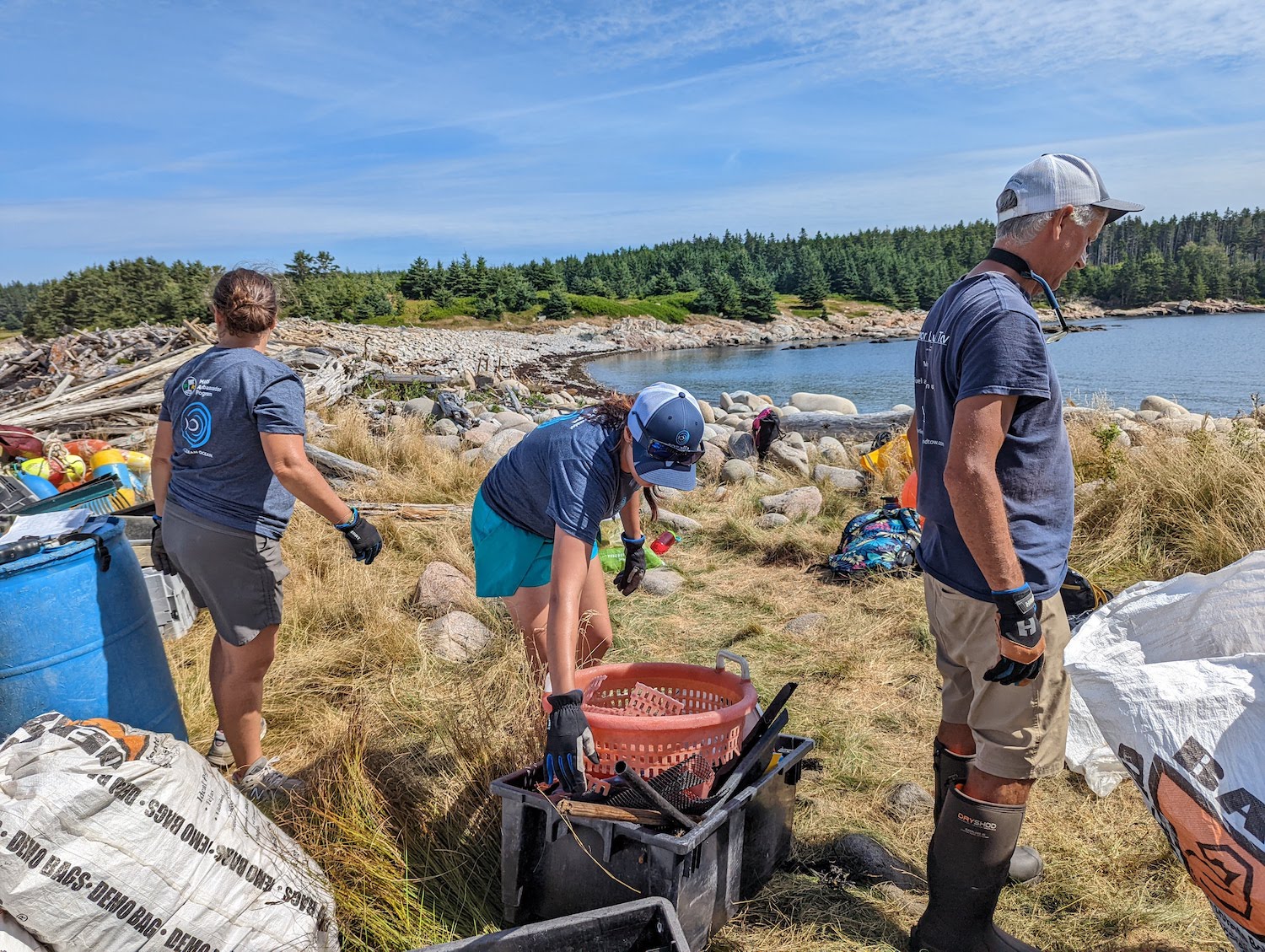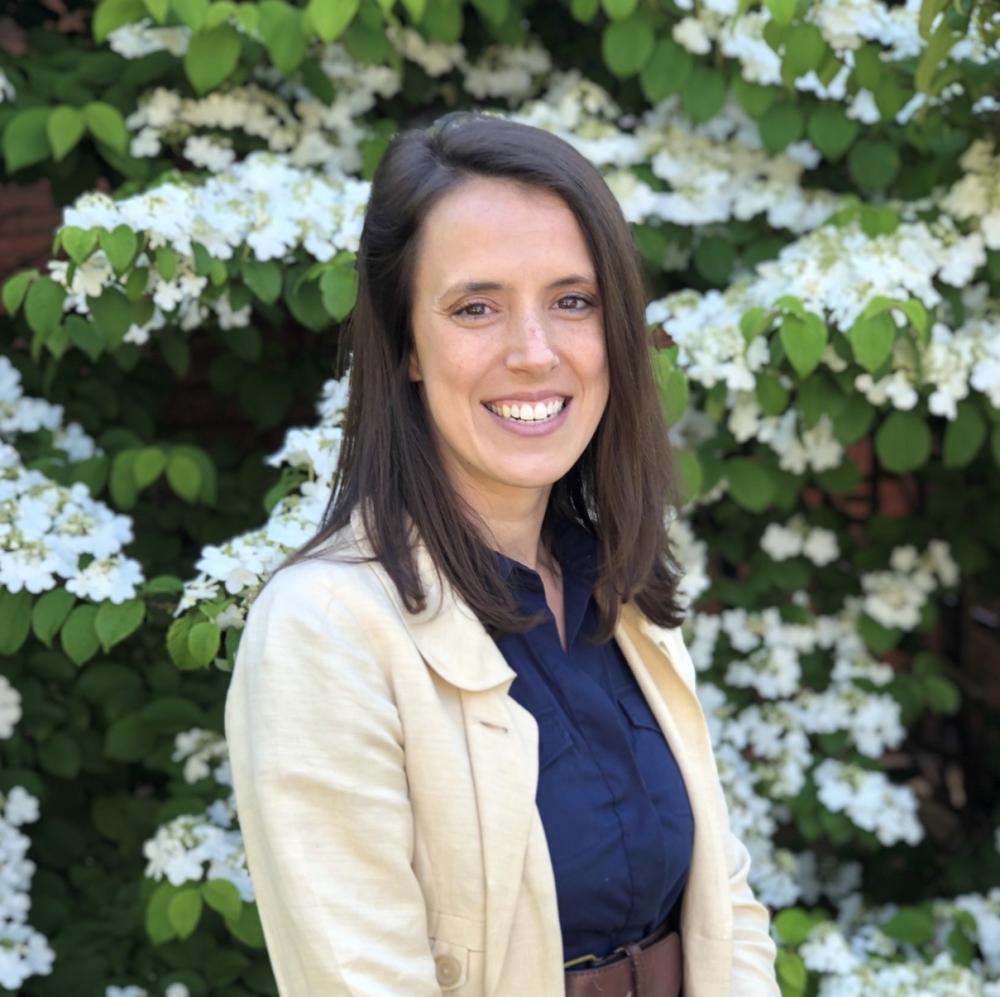
Mars linked up with the nonprofit Rozalia Project to send employee volunteers to the Gulf of Maine to collect and record consumer debris.
A partnership developed by Mars, Incorporated is sending corporate employees on remote expeditions to help solve the problem of marine debris.
The consumer goods giant, maker of confectionary, food, and pet care products and services like M&M’s, Ben’s Original, Pedigree, Banfield, BluePearl, and VCA animal hospitals, established the Mars Ambassador Program (MAP) in 2008. Each year, Mars employees, who the company calls associates, can apply for an assignment that pairs them with a partner nonprofit organization. These associates then step away from their regular jobs for one to six weeks to work directly with the partner organization with the goal of using their expertise to make a positive impact in communities across the globe where Mars has operations or a sourcing relationship.
This year, Mars is partnering with the Rozalia Project to help team members learn about the environmental impact of single-use plastics on marine environments and to develop programs and solutions. The Rozalia Project is a Vermont-based nonprofit with a mission to clean and protect the ocean and to conserve a healthy, thriving marine ecosystem. It works from “surface to seafloor,” with a focus on prevention through education, remediation, innovation and solutions-based research, and also works in inland and coastal areas to prevent debris from reaching the ocean.
Marine debris: What’s the scope of the problem?
Marine debris, which is anything made by humans that ends up in the ocean, is a massive problem. “Right now, one of the greatest threats to the world ocean is the problem of marine debris,” Ashley Sullivan, executive director of the Rozalia Project, told TriplePundit. “It’s a complicated problem, but because of that, it needs multiple angles to solve. As an organization we are doing clean-ups to mitigate the problem in remote areas with the Mars team.”
The Rozalia Project divides marine debris into three categories: consumer debris, derelict fishing gear and microplastic pollution. The numbers are staggering: 80 percent of the debris in the world’s oceans comes from consumer waste. A 2015 study estimates that 8 million metric tons of consumer debris are entering the oceans every year.
Meanwhile derelict fishing gear and waste in the ocean also poses an immediate threat. “Everyone has seen the images of entangled sea life. In the immediate term, derelict fishing gear is causing lethal damage to the marine ecosystem,” Sullivan said. “If you went out to the Great Pacific Garbage Patch to look at what’s floating around, 45 percent of that debris is connected to the fishing industry.”
Microplastic pollution is more difficult to quantify, but Sullivan noted it “has been found in every environment on our planet: terrestrial, marine and in our air.” In this area, the Rozalia Project’s microplastics research has resulted in published papers that “give people the ability to understand the problem of microplastic pollution and make it more accessible and more accurate,” she said.
Using data to drive solutions
The Rozalia Project has worked with tens of thousands of volunteers to collect and record over a million pieces of consumer debris. The data is critical to understanding the problem and driving solutions.
“Most of our work happens in the Gulf of Maine, where our Mars expeditions are happening,” Sullivan explained. “We are removing and cataloging tons and tons of debris. We have removed over six tons this year from the Gulf of Maine. If you look at a lobster trap, there are different parts with different functionalities. When a trap is lost in the ocean, pieces break off and get lost in the ocean. Collecting the debris and recording the data helps us understand which part of the lobster traps get lost and break off, so we can go to a manufacturer to propose solutions that can prevent the problem.”

How Mars is partnering with the Rozalia Project to help clean up the ocean
This year, select Mars associates will embark on one of two expeditions to pick up trash from remote shorelines in the Gulf of Maine and record each piece of debris collected. The associates will also revisit remote shorelines that were accessed in 2014, 2015 and 2019 expeditions to continue building a data set. The data will be compared and analyzed for a greater understanding of the type of marine debris on Maine’s remote shores.
The Rozalia Project also uses clean-ups as an educational tool. The organization has developed a curriculum out of its research to give students the opportunity to both participate in clean-ups and examine the data with the goal of inspiring students to be a part of the solution.
Through their partnership, Mars associates have engaged island and coastal community members in local, in-person educational programs.
“Most recently, when we had Mars ambassadors on board, in addition to clean-up, we took them to a coastal community in Maine to deliver educational programs to young students in that community,” Sullivan said. “Ninety-seven percent of the kids we worked with in the marine debris program felt that they could positively impact the environment. It’s inspiring to embolden young people to know that they have the power to create a difference in creating healthier waterways. Our educational programs do that, and we bring people from across all of the business units at Mars, Incorporated out to coastal communities and engage them in that educational work.”
Annette Jennings, director of community engagement and corporate giving at Mars, is responsible for running this program globally. She said that when the Mars Ambassador Program was created back in 2008, it was one of the first of its kind in the industry. “It was created in the spirit of mutuality as a way to provide nonprofit partners with much-needed skills that they may not have within their organization, while simultaneously providing our associates with opportunities to develop their leadership competencies in a unique setting,” she said.
The future of the partnership
Sullivan is looking forward to their continued collaboration. “I think that the experience that these expeditions leave on Mars employees is really profound, not only as individuals but in their families, communities and in their work,” she said. “They can take these experiences of understanding the marine debris problem in a really intimate way back to their workplace as inspiration and motivation to create solutions.”
Jennings agreed, noting that internal survey results “show increased engagement amongst participants in the program as well as a more concrete understanding of our corporate purpose.”
The impact of the program is not limited to participants, she said. “Every MAP participant is required to share their story with other employees in an effort to amplify the work of a few among many,” she told us. “We know that these stories drive pride amongst our entire associate population, too. Mars Ambassador Program is also a very important way that we engage our own employees in delivering on our purpose: the world we want tomorrow starts with how we do business today.”
This article series is sponsored by Mars and produced by the TriplePundit editorial team.
Image courtesy of Mars

Mary Riddle is the director of sustainability consulting services for Obata. As a former farmer and farm educator, she is passionate about regenerative agriculture and sustainable food systems. She is currently based in Florence, Italy.














